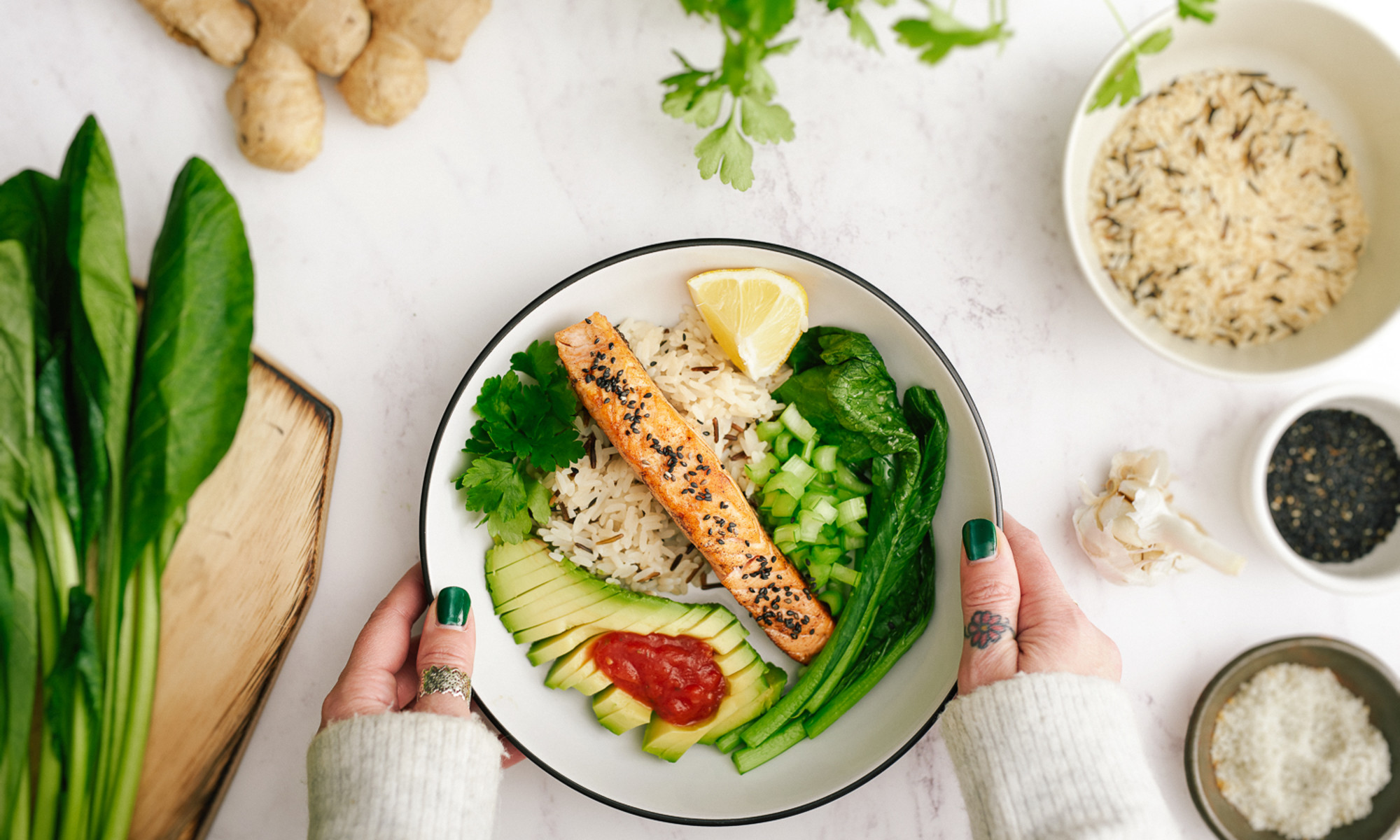5 Things To Include In Your Diet To Ease The Physical Effects Of Trauma
Trauma can have a myriad of effects on the body.

Advertisement
This ad is displayed using third party content and we do not control its accessibility features.
Advertisement
This ad is displayed using third party content and we do not control its accessibility features.
Image by Darren Muir / Stocksy April 25, 2025 Trauma can have many effects on the body, both mental and physical. Physically, research shows1 trauma is linked with disorders ranging from gastrointestinal to cardiovascular to neurological and more. But as functional medicine doctor Mark Hyman, M.D., shared in an Instagram post, the foods we eat may be able to help ease some of the many symptoms of trauma. 1. According to Hyman, when the body is under stress incited by trauma, the microbiome takes a hit. As such, it's important to repopulate the gut with good bacteria by eating fermented foods and probiotics. Think kimchi, sauerkraut, miso, and a quality probiotic supplement. Seafood and omega-3s are another thing worth including in your diet, Hyman says, for both the gut and the brain. You can incorporate more seafood throughout the week, as well as supplement omega-3s and fish oil, he notes in his post, adding that they help with gut and brain support. Fiber can be found in virtually every vegetable, along with certain fruits, grains, legumes, and nuts and seeds. According to Hyman, "Fiber feeds the microbiome, which then stimulates2 the vagus nerve that makes sure the brain functions properly." While trauma can negatively affect our nervous system, stimulating the essential vagus nerve is one thing we can do to start to come back into balance. As integrative neurologist Ilene Ruhoy, M.D., Ph.D., wrote for mbg, "The more we stimulate the vagus nerve, the more we enhance the calming effects of the parasympathetic (or 'rest and digest') nervous system and counter the stimulating effects of the sympathetic (or 'fight or flight') nervous system." 4. As Hyman notes, inflammation "is a response the body experiences when dealing with trauma." And over time, when inflammation becomes chronic, it can lead to a bunch of issues like fatigue, digestive issues, eczema, and more. So, he suggests, "Include anti-inflammatory spices like turmeric that help to bring down inflammation in the body." Some other herbs and spices to consider include ginger, cloves, cinnamon, rosemary, sage, and thyme. Last but not least, Hyman stresses the importance of taking a quality high-dose multivitamin. Four weeks after the earthquake, those who had taken a high-dose multivitamin saw greater improvement in mood, anxiety, and energy compared to the control group. The study authors concluded that micronutrients could be an "inexpensive and practical treatment for acute stress following a natural disaster."
Fermented foods & probiotics
Anti-inflammatory spices
The takeaway
As Hyman points out, we often go straight for comfort foods when we're traumatized because they momentarily lower the level of our stress hormones while simultaneously increasing endorphins and levels of dopamine and serotonin. This is completely understandable. But after a while, those comfort foods can do more harm than good for the trauma response (more on that topic here).
"At a certain point," he says, "it becomes necessary to reverse the dietary choices to help ease trauma." While a healthy diet alone certainly can't heal trauma, over time, it might help it feel a bit more manageable.
Advertisement
This ad is displayed using third party content and we do not control its accessibility features.

 ValVades
ValVades 
































